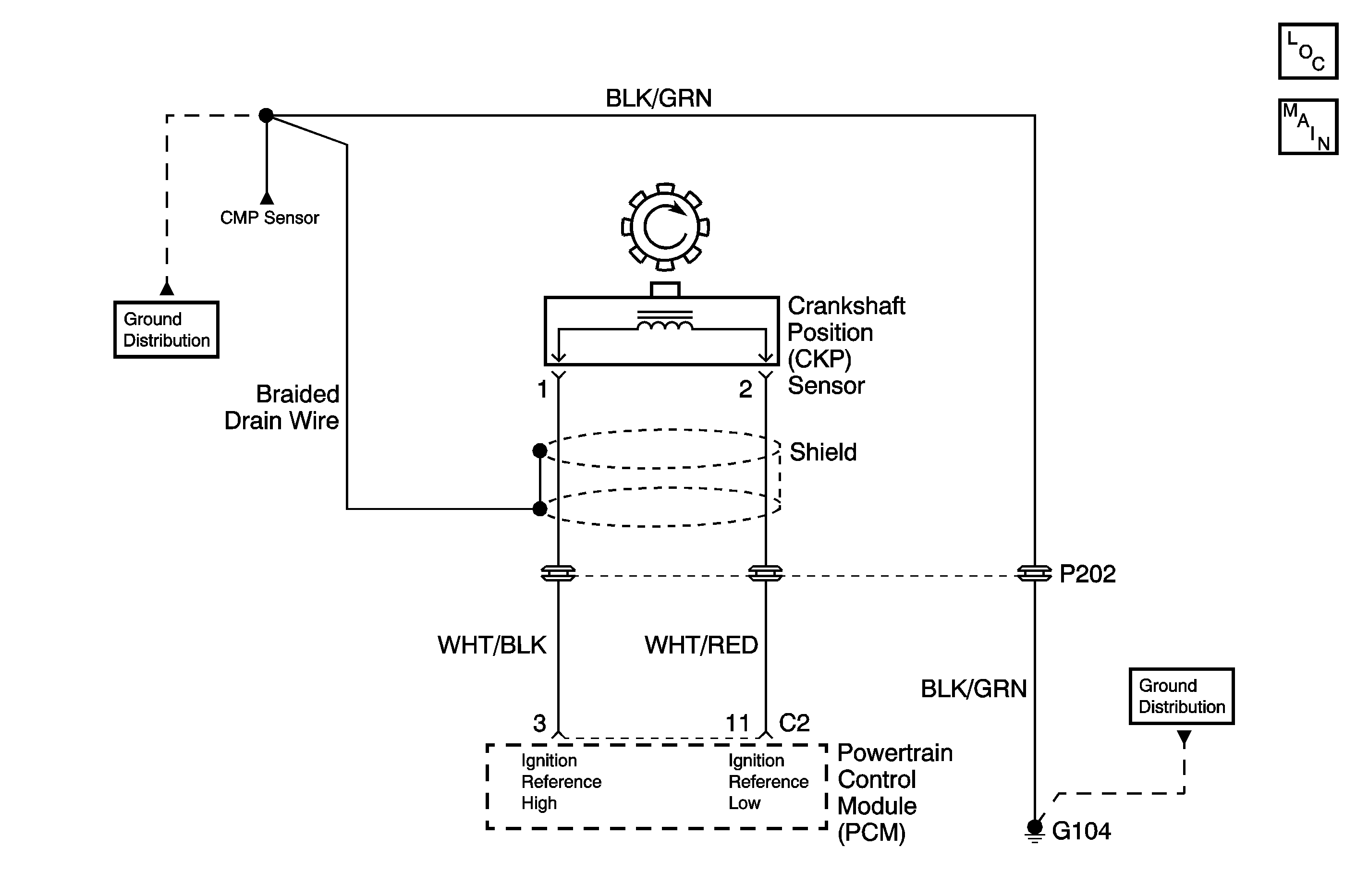
Circuit Description
The crankshaft position (CKP) sensor indicates crankshaft position to the powertrain control module. The powertrain control module use the CKP sensor signal in order to determine which cylinder is misfiring when the misfire diagnostic is run.
Conditions for Running the DTC
Engine speed is greater than 700 RPM.
Conditions for Setting the DTC
No signal from the CKP sensor in two engine revolutions.
Action Taken When the DTC Sets
| • | The PCM illuminates the malfunction indicator lamp (MIL). |
| • | The PCM records the operating conditions at the time the diagnostic fails. This information is stored in the Freeze Frame buffer. |
Conditions for Clearing the MIL/DTC
| • | The MIL turns OFF after three consecutively passing trips without a fault present. |
| • | A History DTC clears after 40 consecutive warm-up cycles without a fault. |
| • | Use the scan tool Clear DTC Information function or disconnect the PCM battery feed in order to clear the DTC. |
Diagnostic Aids
Check for any of the following conditions:
| • | Check the crankshaft timing belt pulley for foreign material or damaged teeth. |
| • | A faulty connection at the PCM. |
An intermittent malfunction may be caused by a problem in the CKP sensor electrical circuits. Inspect the wiring harness and components for any of the following conditions:
| • | Backed out terminals. |
| • | Improper mating of terminals. |
| • | Broken electrical connector locks. |
| • | Improperly formed or damaged terminals. |
| • | Faulty terminal to wire connections. |
| • | Physical damage to the wiring harness. |
| • | A broken wire inside the insulation. |
If a DTC P0335 cannot be duplicated, the information included in the Freeze Frame data can be useful in determining vehicle operating conditions when the DTC was first set.
Test Description
The numbers below refer to the step numbers in the Diagnostic Table.
-
The Powertrain OBD System Check prompts the technician to complete some basic checks and store the freeze frame data on the scan tool if applicable. This creates an electronic copy of the data taken when the fault occurred. The information is then stored in the scan tool for later reference.
-
This step determines if fault is present.
-
This step checks the CKP sensor resistance. If the CKP sensor resistance is within the specified value, measure the resistance from each terminal of the CKP sensor to ground. Replace the CKP sensor if the sensor resistance is less than 1M ohm.
-
This step checks for an open or short in the CKP sensors high and low reference circuits between the PCM and the CKP sensor.
Step | Action | Value(s) | Yes | No | ||||||
|---|---|---|---|---|---|---|---|---|---|---|
Did you perform the Powertrain On-Board Diagnostic (OBD) System Check? | -- | |||||||||
Is a DTC P0335 set? | -- | Go to Diagnostic Aids | ||||||||
Is the resistance within the specified value? | 360 to 460 ohms at 20°C (68°F) | |||||||||
Was a repair necessary? | -- | |||||||||
5 |
Was a repair necessary? | -- | ||||||||
6 |
Was a repair necessary? | -- | ||||||||
7 | Replace the CKP sensor. Refer to Crankshaft Position Sensor Replacement . Is the action complete? | -- | -- | |||||||
8 | Replace the PCM. Refer to Powertrain Control Module Replacement . Is the action complete? | -- | -- | |||||||
9 |
Are any DTCs displayed on the scan tool? | -- | Go to the Applicable DTC Table | System OK |
